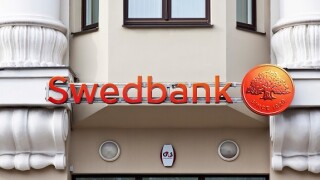Intesa Sanpaolo
-
Esoteric names from the FIG market are expected to fill the post-Easter issuance pipeline to take advantage on the constructive market conditions on offer.
-
Three banks jumped into the euro senior market after the Easter break on Tuesday, benefitting from stable demand and printing with low new issue concessions.
-
South African lender Investec has secured a syndicated loan facility, with a consortium of 29 international banks. Bank borrowers are continuing to lean on their relationship lenders in South Africa, though the environment in the country remains challenging.
-
Financial issuance got underway in the euro primary market on Wednesday, with borrowers keen to bring forward ESG-labelled bonds in the first deals of the week.
-
India’s Adani Green Energy has raised a $1.35bn green loan to support the construction of projects under its renewable portfolio.
-
European banks will exercise extreme caution in dollars after an ill-fated senior deal from Swedbank this week. It could signal the end of a long run of ultra-easy borrowing conditions in US credit markets, with severe volatility stemming from fears of rising interest rates. Tyler Davies reports.
-
-
The financial primary market paused on Wednesday. Despite euro borrowers enjoying oversubscribed order books this week, demand in the secondary market is lagging behind, as investors await further rises in yields.
-
Intesa Sanpaolo saved a couple of basis points with the sale of a new senior bond from its green issuance framework on Tuesday, compared to fair value on a conventional deal. The new issue came as markets remained on edge ahead of the European Central Bank’s next meeting.
-
FIG issuers are taking care to announce deals before opening order books this week, as they try and book their places in the market ahead of a tricky meeting for the European Central Bank on Thursday.
-
Intesa Sanpaolo ventured outside of its home market in search of senior paper this week, placing its first sterling deal in almost nine months and its first yen trade since early 2019.
-
Italy made its long-awaited green bond debut this week, and set new records for the biggest and longest sovereign green bond.











